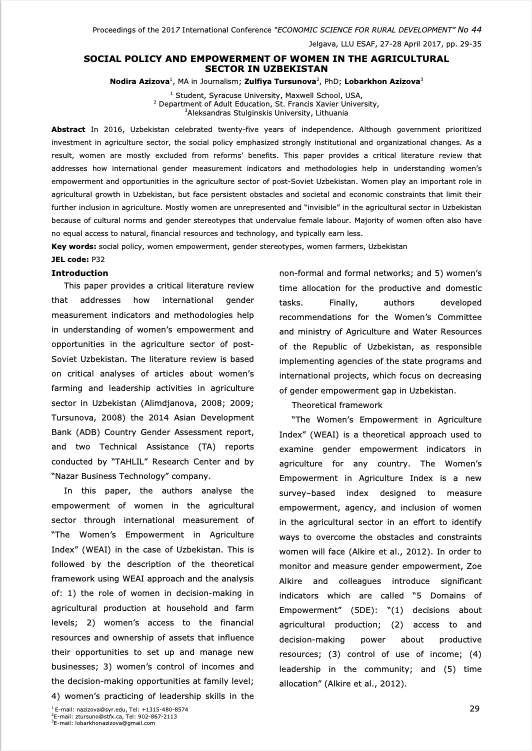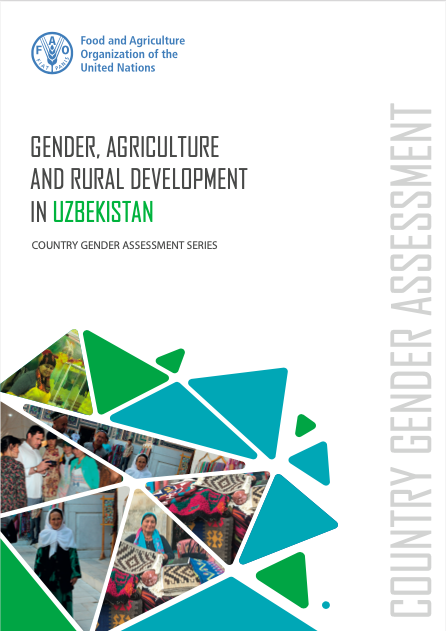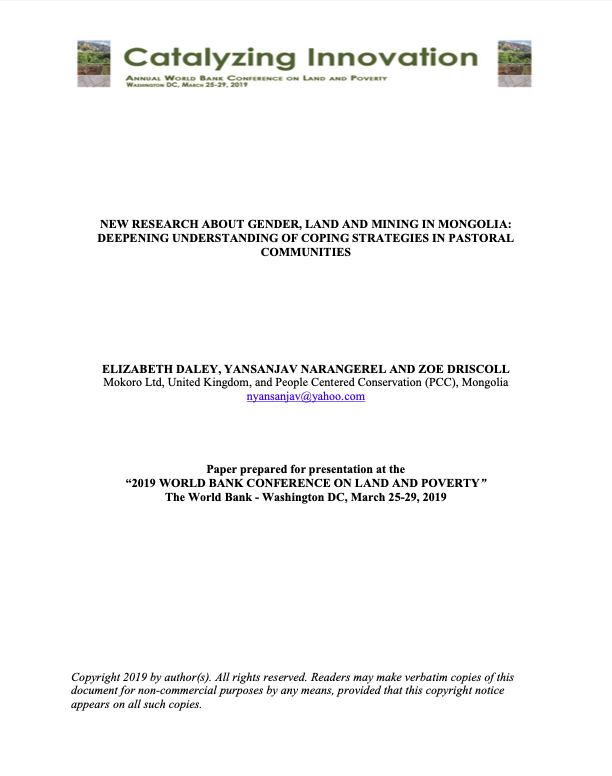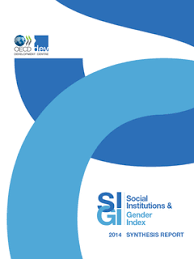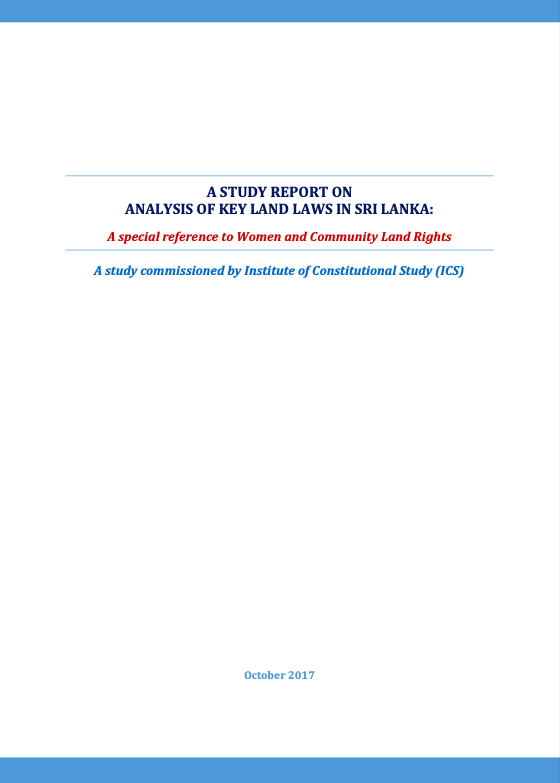Social Policy and Empowerment of Women in the Agricultural Sector in Uzbekistan
In 2016, Uzbekistan celebrated twenty-five years of independence. Although government prioritized investment in agriculture sector, the social policy emphasized strongly institutional and organizational changes. As a result, women are mostly excluded from reforms’ benefits. This paper provides a critical literature review that addresses how international gender measurement indicators and methodologies help in understanding women’s empowerment and opportunities in the agriculture sector of post-Soviet Uzbekistan.

